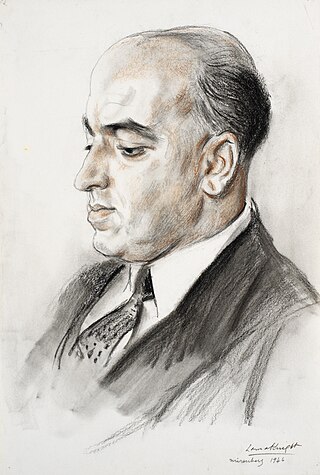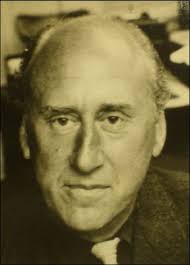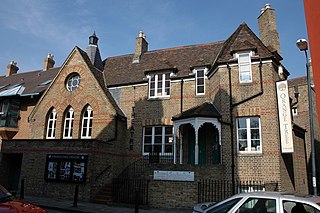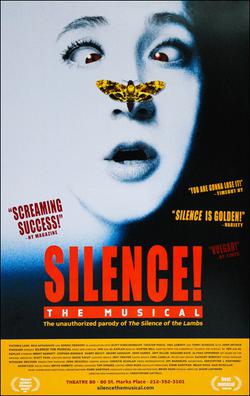
Maurice is a novel by E. M. Forster. A tale of homosexual love in early 20th-century England, it follows Maurice Hall from his schooldays through university and beyond. It was written in 1913–1914 and revised in 1932 as well as 1952–1960. Forster was an admirer of the poet, philosopher, socialist, and early gay rights activist Edward Carpenter and, following a visit to Carpenter's home at Millthorpe, Derbyshire in 1913, was inspired to write Maurice. The cross-class relationship between Carpenter and his working-class partner, George Merrill, presented a real-life model for that of Maurice and Alec Scudder.

Rupert James Hector Everett is a British actor. He first came to public attention in 1981 when he was cast in Julian Mitchell's play and subsequent film Another Country (1984) as a gay pupil at an English public school in the 1930s; the role earned him his first BAFTA Award nomination. He received a second BAFTA nomination and his first Golden Globe Award nomination for his role in My Best Friend's Wedding (1997), followed by a second Golden Globe nomination for An Ideal Husband (1999). He voiced Prince Charming in the animated films Shrek 2 (2004) and Shrek the Third (2007). He also played John Lamont/Mr. Barron in Miss Peregrine's Home for Peculiar Children (2016).

David Patrick Maxwell Fyfe, 1st Earl of Kilmuir,, known as Sir David Maxwell Fyfe from 1942 to 1954 and as Viscount Kilmuir from 1954 to 1962, was a British Conservative politician, lawyer and judge who combined an industrious and precocious legal career with political ambitions that took him to the offices of Solicitor General, Attorney General, Home Secretary and Lord High Chancellor of Great Britain.

James Henry Mussen Campbell, 1st Baron Glenavy,, was an Irish lawyer, politician in the British Parliament and later in the Oireachtas of the Irish Free State. He was also Lord Chancellor of Ireland.

Patrick Gordon Campbell, 3rd Baron Glenavy was an Irish journalist, humorist and television personality.
Seduction is a 2004 one-act play by Jack Heifner. It is an all-male, gay adaptation of the 1897 play La Ronde by Arthur Schnitzler.
Charles Henry Gordon Campbell, 2nd Baron Glenavy (1885–1963) succeeded his father James to become 2nd Baron Glenavy in March 1931. He was in turn succeeded as the 3rd Baron by his son, the satirist and television personality Patrick Campbell.

The Sexual Offences Act 1967 is an act of Parliament in the United Kingdom. It legalised homosexual acts in England and Wales, on the condition that they were consensual, in private and between two men who had attained the age of 21. The law was extended to Scotland by the Criminal Justice (Scotland) Act 1980 and to Northern Ireland by the Homosexual Offences Order 1982.

The Orange Tree Theatre is a 180-seat theatre at 1 Clarence Street, Richmond in south-west London, which was built specifically as a theatre in the round. It is housed within a disused 1867 primary school, built in Victorian Gothic style.

What's Wrong with Angry? is a stage play written in 1992 by Patrick Wilde about a gay love story between two British schoolboys. The play was the basis for the 1998 Paramount Classics feature film Get Real.

Silence! The Musical is a 2005 musical created by Jon Kaplan and Al Kaplan as a parody of the 1991 Academy Award-winning film The Silence of the Lambs, which is in turn based on 1988 novel of the same name by Thomas Harris. The musical is itself based on a parody screenplay of the same name written by Jon Kaplan and Al Kaplan.
Glenn Chandler is a Scottish playwright, novelist, producer and theatre director. He has written plays for theatre and radio, original screenplays for television and films, television series, and also novels. His best known work is the Scottish television detective series Taggart, which was commissioned by Scottish Television for the ITV Network from 2 July 1985 until 7 November 2010, and which continues to be broadcast around the world. Since the completion of Taggart in 2010, Glenn Chandler has focused on writing for the theatre, with a consistent run of productions in both London and Edinburgh.

HGO Trust (HGO) was founded in 1990 by Roy Budden as an evening class at the Hampstead Garden Institute, London. Its objectives are to advance public education in the art and science of music with emphasis on operatic music.
Arinzé Mokwe Kene is a Nigerian-born British actor and playwright.
Judith Annabel Leventon is an English actress who has acted in various roles on stage and television.
Events from the year 1904 in Scotland.
John Saul, also known as Jack Saul, and Dublin Jack, was an Irish prostitute. He featured in two major homosexual scandals, and as a character in two works of pornographic literature of the period. Considered "notorious in Dublin and London" and "made infamous by the sensational testimony he gave in the Cleveland Street scandal", which was published in newspapers around the world, he has recently been the subject of scholarly analysis and speculation. One reason is the paucity of information on the lives and outlook of individual male prostitutes of the period. Saul has also come to be seen by some as a defiant individual in a society that sought to repress him: "a figure of abjection who refuses his status".
Gareth Morrison is a Scottish actor, screenwriter and film producer. Morrison appears primarily in horror, thriller and dramatic movies. He is known for his role as a student-demonstrator in TV series Taggart and for playing the sniper Potrovsky in a horror movie Outpost: Rise of the Spetsnaz.
Rona Morison is a Scottish actress and narrator. She played Chell in Our Ladies in 2019 and Thompson in Absentia in 2020.
The Bunker was a fringe theatre in Southwark, London, England, from 2016 to 2020.










